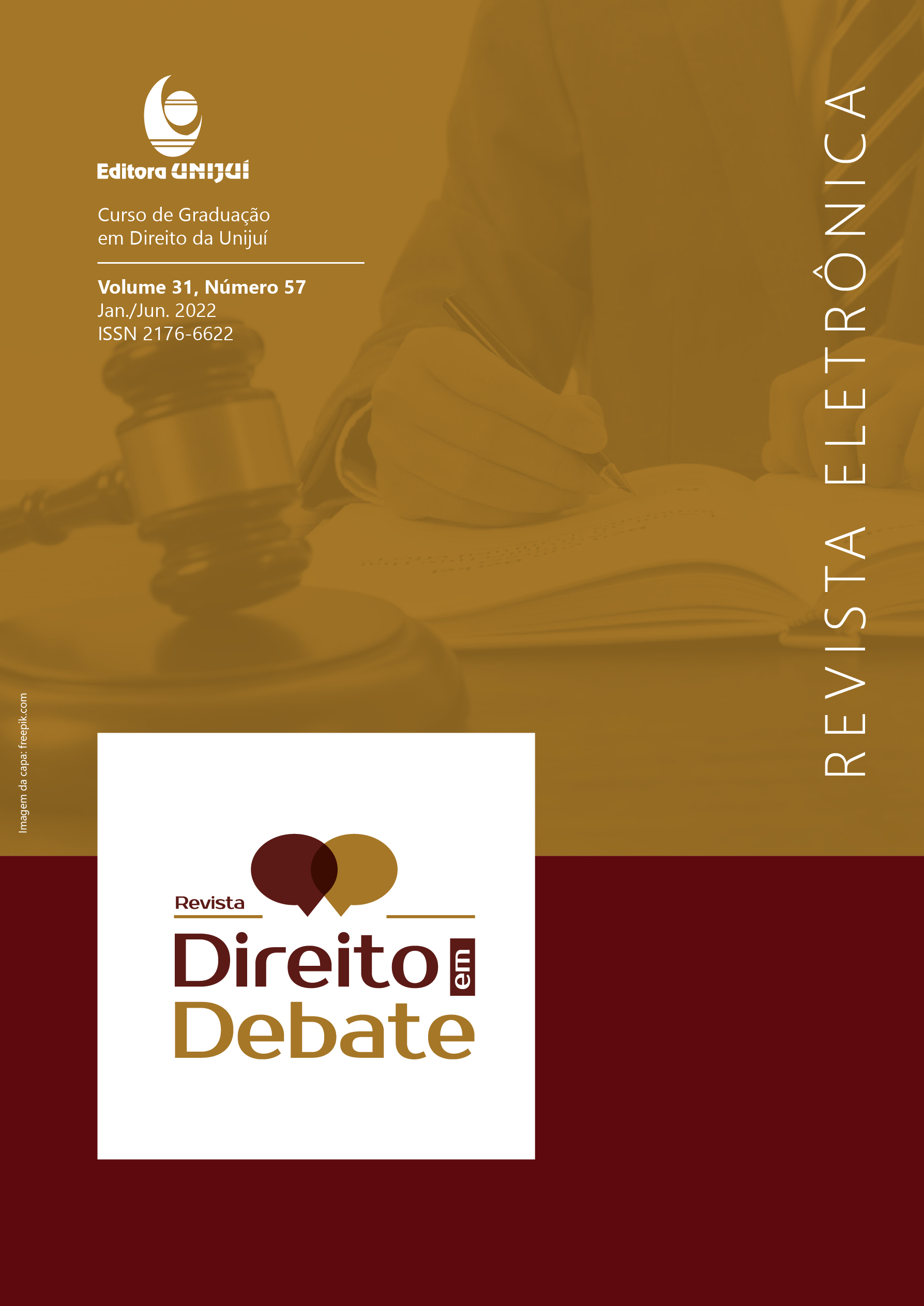The role of the judiciary power in the realization of fundamental rights in the face of scarcity of public resources in the context of a pandemic
DOI:
https://doi.org/10.21527/2176-6622.2022.57.12517Keywords:
Coronavirus, Democratic decision, Fundamental rights, Public resourcesAbstract
The purpose of this article is to analyze the rationalization of decisions in ADPF 671 (universal right to health) and in ADI 6357 (non-application of the “golden rule” in respect of fundamental rights) of the Supreme Court dealing with constitutional “conflicts” involving the scarcity of public resources and the guarantees of fundamental rights, such as the right to health, life and the dignity of the human person in the face of the pandemic scenario (Covid-19). In this work, the premises of post-positivism were used to address the role of the Judiciary in guaranteeing a Democratic State of Law due to the judicialization of this stir in the current context of crisis. With this, the normatization of fundamental rights established in the Theory of Principles of the jusphilosopher Ronald Dworkin and his thesis of the correct answer will be emphasized. The methodology is based on a qualitative appraisal of books, jurisprudence and other scientific articles that bring resources on the Theory of Law aiming to assist the Judiciary in guaranteeing indispensable rights in the context of a pandemic, in addition to an appreciation of the correlated legislative set.
Downloads
Published
How to Cite
Issue
Section
License
Autores que publicam nesta revista concordam com os seguintes termos:
a. A submissão de trabalho(s) científico(s) original(is) pelos autores, na qualidade de titulares do direito de autor do(s) texto(s) enviado(s) ao periódico, nos termos da Lei 9.610/98, implica na cessão de direitos autorais de publicação na Revista Direito em Debate do(s) artigo(s) aceitos para publicação à Universidade Regional do Noroeste do Estado do Rio Grande do Sul, autorizando-se, ainda, que o(s) trabalho(s) científico(s) aprovado(s) seja(m) divulgado(s) gratuitamente, sem qualquer tipo de ressarcimento a título de direitos autorais, por meio do site da revista e suas bases de dados de indexação e repositórios, para fins de leitura, impressão e/ou download do arquivo do texto, a partir da data de aceitação para fins de publicação. Isto significa que, ao procederem a submissão do(s) artigo(s) à Revista Direito em Debate e, por conseguinte, a cessão gratuita dos direitos autorais relacionados ao trabalho científico enviado, os autores têm plena ciência de que não serão remunerados pela publicação do(s) artigo(s) no periódico.
b. Autores mantém os direitos autorais e concedem à revista o direito de primeira publicação, com o trabalho simultaneamente licenciado sob a Licença Creative Commons Attribution que permite o compartilhamento do trabalho com reconhecimento da autoria e publicação inicial nesta revista.
c. Autores têm autorização para assumir contratos adicionais separadamente, para distribuição não-exclusiva da versão do trabalho publicada nesta revista (ex.: publicar em repositório institucional ou como capítulo de livro), com reconhecimento de autoria e publicação inicial nesta revista.
d. Autores têm permissão e são estimulados a publicar e distribuir seu trabalho online (ex.: em repositórios institucionais ou na sua página pessoal) a qualquer ponto antes ou durante o processo editorial, já que isso pode gerar alterações produtivas, bem como aumentar o impacto e a citação do trabalho publicado (Veja O Efeito do Acesso Livre).
e. O(s) A(s) autores(as) declaram que o texto que está sendo submetido à Revista Direito em Debate respeita as normas de ética em pesquisa e que assumem toda e qualquer responsabilidade quanto ao previsto na resolução Nº 510/2016, do Conselho Nacional de Ética em Pesquisa.
f. Os autores declaram expressamente concordar com os termos da presente Declaração de Direito Autoral, que se aplicará a submissão caso seja publicada por esta Revista.
g. A Revista Direitos em Debate é uma publicação de acesso aberto, o que significa que todo o conteúdo está disponível gratuitamente, sem custo para o usuário ou sua instituição. Os usuários têm permissão para ler, copiar, distribuir, imprimir, pesquisar, criar links para os textos completos dos artigos, ou utilizá-los para qualquer outro propósito legal, sem pedir permissão prévia do editor ou o autor. Estes princípios estão de acordo com a definição BOAI de acesso aberto.










